Uncertainty still reigns about the future of the U.S.-backed terrorist group YPG, the Syrian wing of the PKK. But Türkiye remains firm in its stand on the group. Defense Ministry sources on Thursday reiterated their call for the YPG’s full integration into the Syrian army in the post-Assad era and vowed that Ankara would not allow separatist attempts in its southern neighbor.
The YPG carved out a so-called autonomous administration for itself in Syria’s northeast, opposite the Turkish border, as the country was mired in civil war. Over time, it found widespread support from the United States under the pretext of a joint fight against Daesh, another terrorist group which once controlled several towns in Syria’s north. Türkiye, which suffered from cross-border attacks by the YPG, supported the Syrian opposition through military offensives in Syria’s north in the past decade and liberated parts of northern Syria from the YPG’s grip.
After the fall of the Assad regime that effectively ended the civil war, the YPG remained the only major armed group not joining anti-regime forces led by interim President Ahmed al-Sharaa. Damascus shunned an open conflict with the YPG and sought a deal for their integration into the new Syrian army. In March, al-Sharaa and YPG ringleader Ferhat Abdi Şahin signed a deal for the integration of YPG members into the army. They are expect to cement the deal soon, after another upcoming meeting in Damascus.
Türkiye is a major supporter of the al-Sharaa-led administration and also backs the March deal. Yet, a recent gathering in Syria where YPG members voiced “a decentralized system” in the country, raised Turkish concerns, while Damascus strongly opposed the concept, which amounts to the disintegration of the country.
This month, Syrian Foreign Minister Asaad al-Shaibani warned that “the unity of Syrian territory is non-negotiable,” adding that any delays in implementing the agreement with the YPG would “prolong the chaos” in the country.
In a statement issued on Sunday, the Syrian presidency said that al-Sharaa met with U.S. Special Envoy for Syria Tom Barrack on Saturday. Both sides agreed on “the necessity of implementing a comprehensive agreement with (the YPG), ensuring the return of Syrian government sovereignty over all Syrian territories, while discussing mechanisms to integrate these forces within state institutions,” the presidency said.
Defense Ministry sources said Türkiye was closely monitoring the deal in the context of maintaining regional stability and security. “We support every positive step for peace and security in Syria, but it should be conducted in a transparent, inclusive manner that takes legitimate security concerns of all sides into consideration. Our stance on the necessity of keeping the Syrian army as the only armed structure in Syria and on the integration of (the YPG) terrorist group into the army did not change. There may be delays in the process, but it won’t change anything. Türkiye, in cooperation with the Syrian government, will never allow decentralization in Syria or a separatist agenda,” sources said.
Sources also announced that a joint coordination unit founded by Türkiye, Syria and Jordan started work in Syria on May 19, as a follow-up to the decision to set up a joint operations center by five countries for the fight against Daesh in Syria.
Türkiye, EU defense
Defense Ministry sources also commented on the Council of Europe’s adoption of the Security Action for Europe (SAFE), a joint defense procurement program that also includes non-EU member Türkiye. Sources noted that the program still had many restrictions for non-EU states.
“Unfortunately, we witnessed actions to prevent the inclusion of our country and other non-EU states into the EU’s defense and security architecture in this process and some actions that amounted to the use of Türkiye’s exclusion as a bargaining chip,” the sources said, in reference to Greece’s opposition to broader access of Türkiye to defense supplying mechanisms.
“Europe’s security can only be strengthened through diversity, strategic foresight and collective solidarity, but this needs a visionary approach. Türkiye will be a major contributor to Europe’s defense thanks to its defense capabilities. This is a fact voiced by many allies of Türkiye during negotiations on SAFE,” the sources said.
Athens was seeking to curb Türkiye’s involvement in Europe’s defense industry, and Greek media reported earlier this month that their Foreign Ministry instructed ambassadors in European countries to raise the issue.
Although Türkiye and Greece pursue rapprochement in their formerly hostile relations, Athens also works to bolster its defenses by new acquisitions, while Türkiye’s flourishing defense industry raises its profile, especially with sales of uncrewed aerial vehicles (UCAVs) to other countries and boosting its military arsenal with locally made products. Ankara and Athens are particularly at odds on their maritime borders in the Aegean Sea, which has been the venue for dogfights between Turkish and Greek fighter jets in the past.
At a news conference with German Chancellor Friedrich Merz in Berlin earlier this month, Greek Prime Minister Kyriakos Mitsotakis highlighted that Europe should “choose partners carefully” while strengthening the defense industry, and they “must be aligned with European foreign policy.”
Europe aims to reinforce its defenses as the United States reconsiders its generous support to the continent’s defense since World War II. Türkiye is eager to contribute to Europe’s security architecture, although the bloc stalled its accession for years. Foreign Minister Hakan Fidan has emphasized earlier that Türkiye will continue to play a crucial role in European security.
“As NATO’s second-largest military, Türkiye will continue to play a crucial role in the European security architecture through its military capabilities and defense industry infrastructure,” Fidan told a press conference following a NATO foreign ministers meeting in Antalya, southern Türkiye.

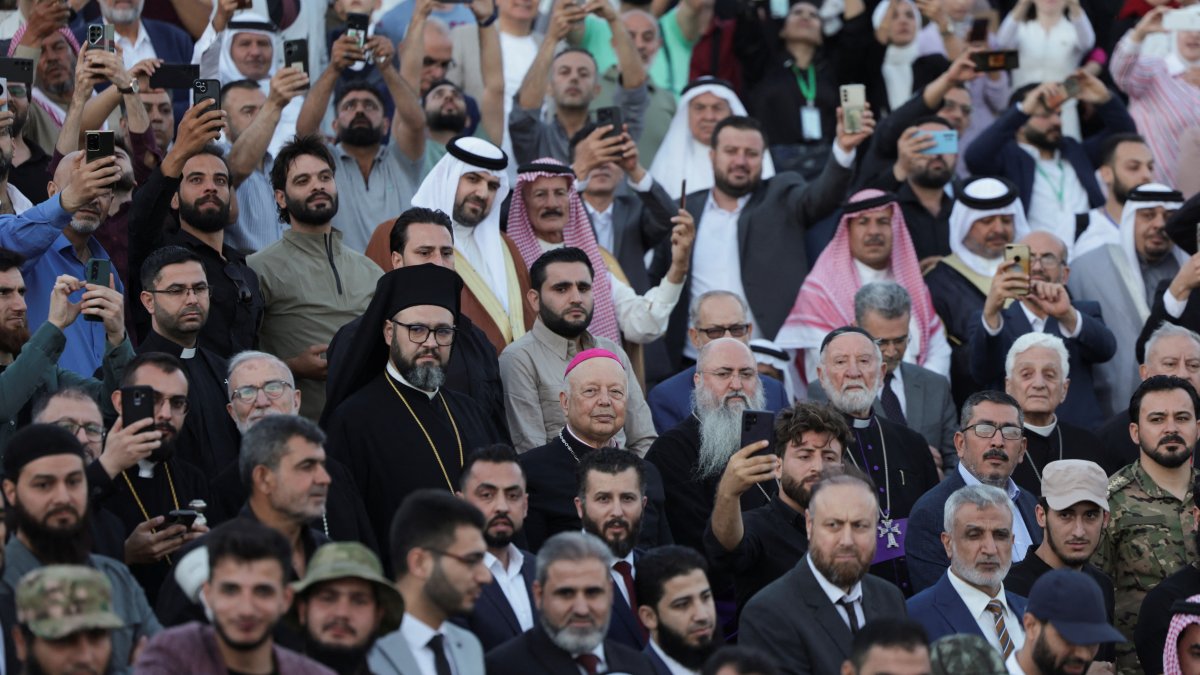
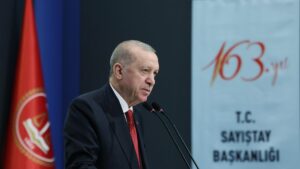
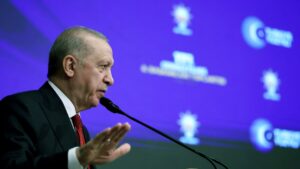
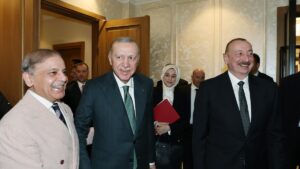

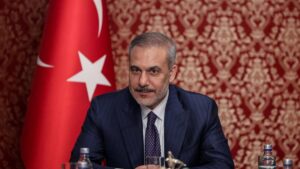
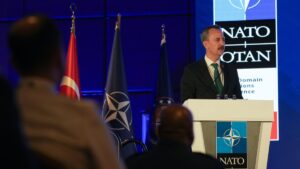
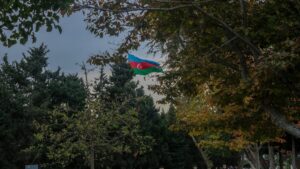
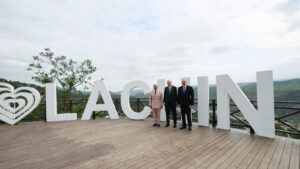
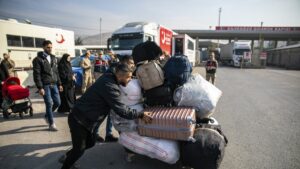



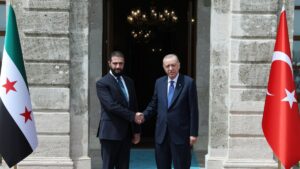


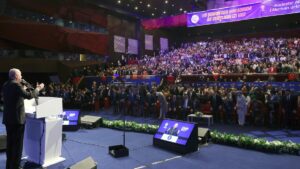
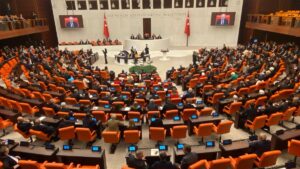
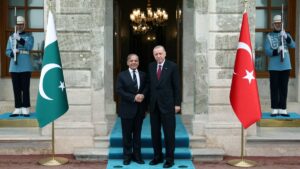
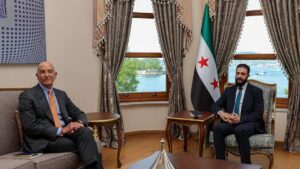
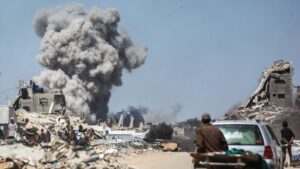
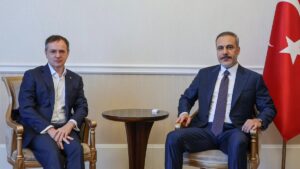
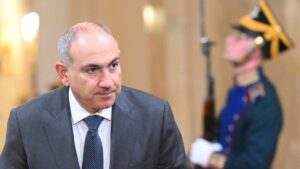

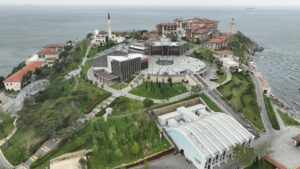

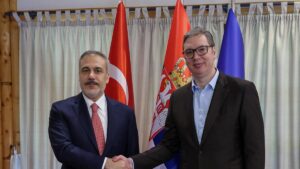

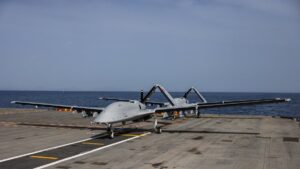
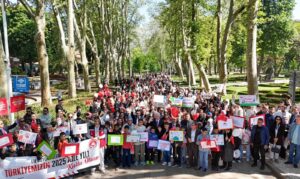
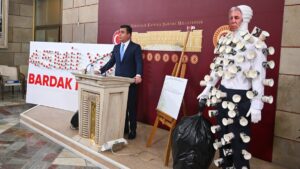
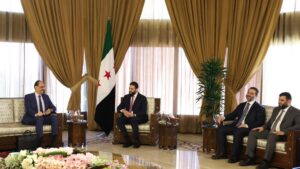
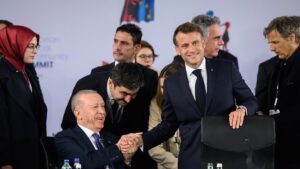
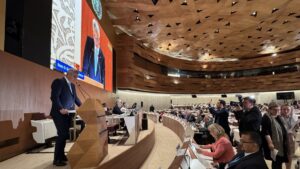
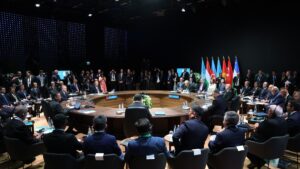
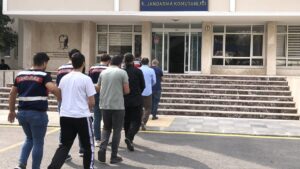
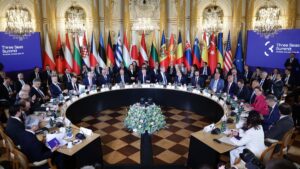
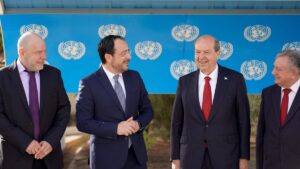
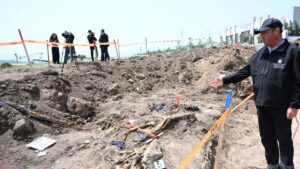
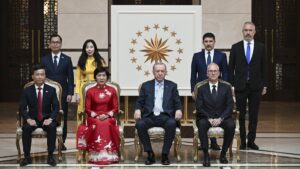
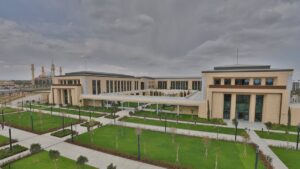


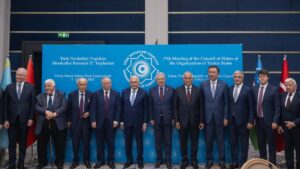
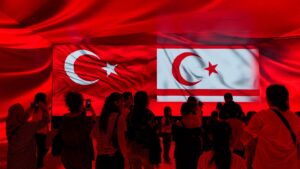

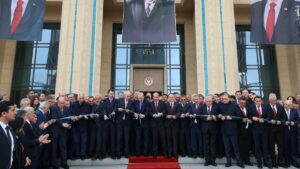

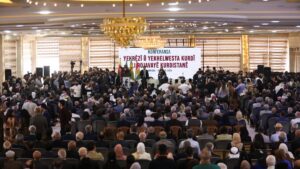
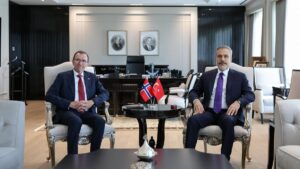
Be First to Comment